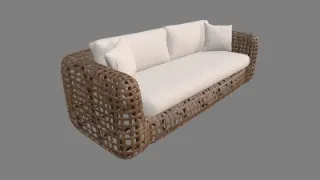
How to Remesh and Bake Holes in Autodesk Maya
Table of Contents
General Information
This guide is part of the RapidPipeline 3D Plugin Actions Knowledge Base. It shows how to Remesh and Bake Holes on Autodesk Maya; if you'd like to know more about it, please check out the following links:
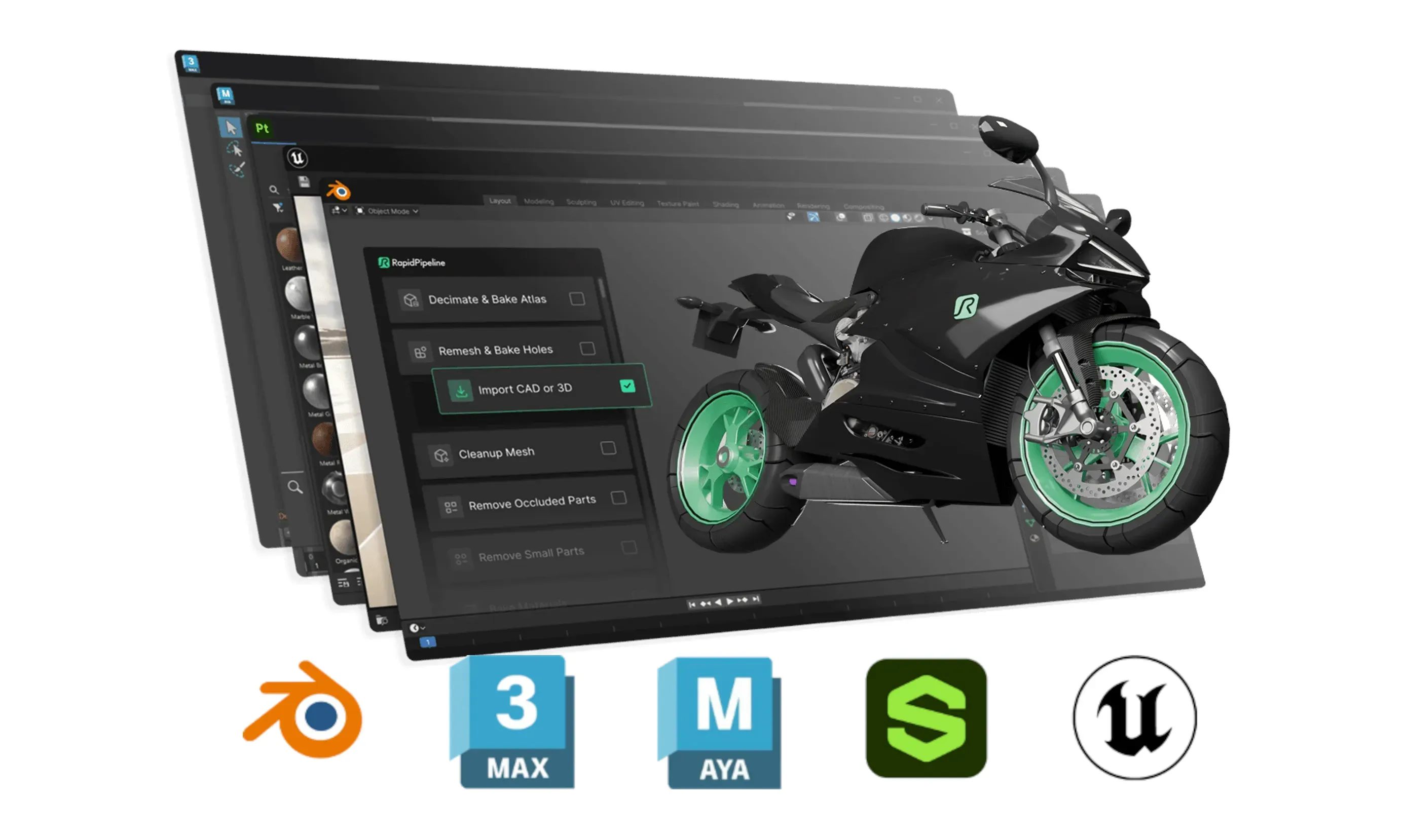
Best-in-Class 3D Processing in Your Favorite Tools.
100% Local Processing via Desktop Software.
Tutorials & Videos
- First step is to make sure the RapidPipeline Processor Plugin for Maya is installed and ready to use.
- Open the Plugin via the Menu Bar, clicking on RapidPipeline and Show Plugin Window.
- Select the wicker mesh by clicking on it in the Viewport.
- Inside the Plugin window, choose the Action Remesh and Bake Holes.
- Press the Run button.
- Use the Maya Plugin
- Select a part
- Run "Remesh and Bake Holes" Action
- Examine the results
This tutorial shows how use the RapidPipeline Processor Plugin in Maya to simplify a 3D model. It walks through the use of the Remesh & Bake Holes Action , and explains how to use it for closing holes and baking them into Alpha information. For more information see the Maya Plugin Documentation.
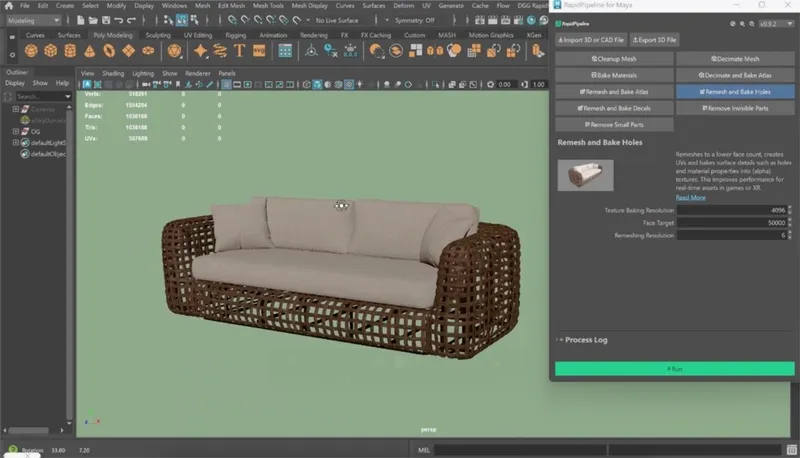
The wicker sofa input model.
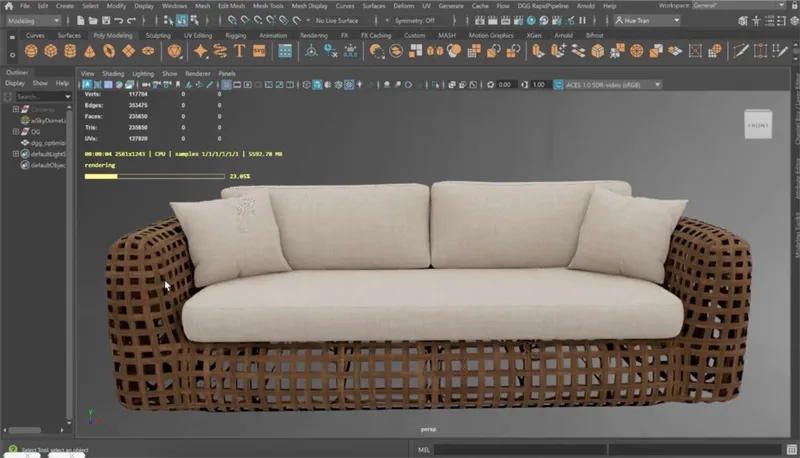
The wicker sofa after processing the wicker.
Here is a preview of the processing´s output: the original wicker (top) is 811,008 triangles, and the output wicker (bottom) is 10,476 triangles.
The wicker has been remeshed, and textures were baked including an alpha map for the holes.
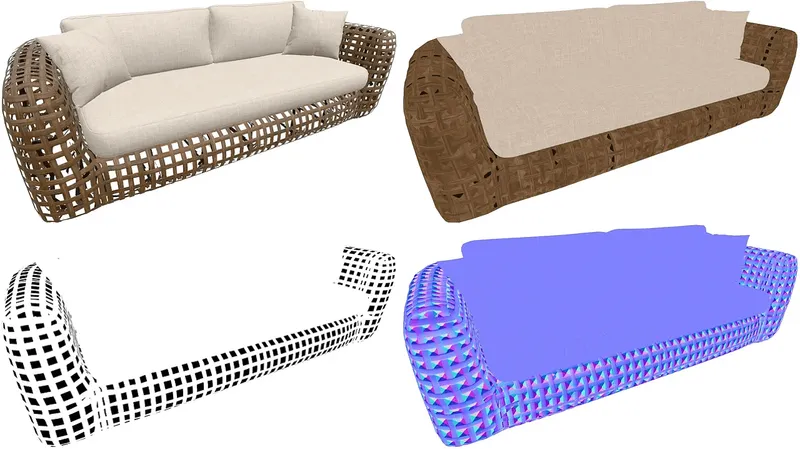
The remeshed wicker sofa (upper left), baked color (upper right), baked alpha (lower left), and baked normal (lower right).
Remesh and Bake Holes Action

Location of the UI in the Menu Bar.
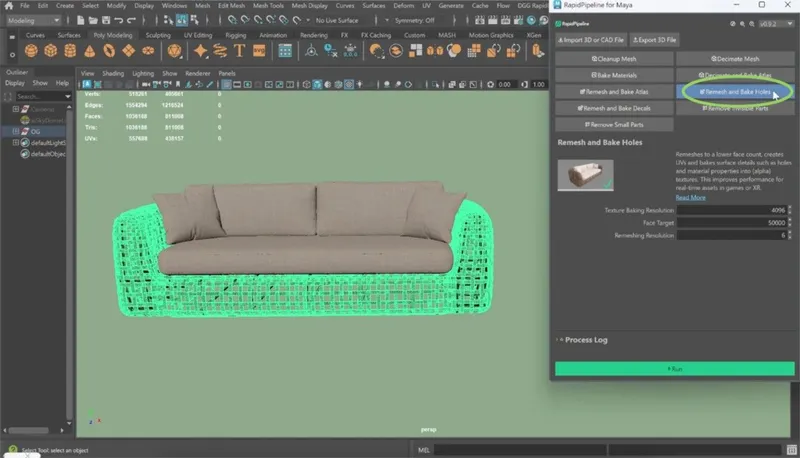
The Remesh and Bake Holes Action opened in the Plugin.
Examine the Results
Maya default viewport settings cause some issues with the baked alpha on the output model. To prevent this issue, open the Renderer Settings by clicking on the square icon. Then, set the Transparency Algorithm to Alpha Cut.
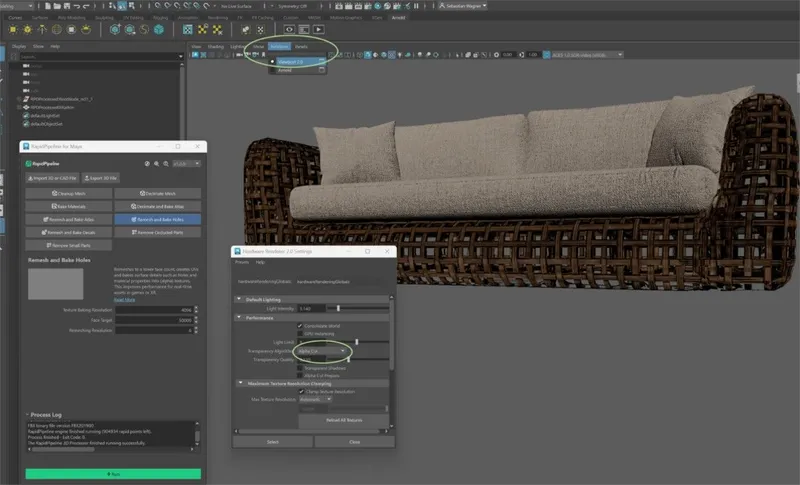
"Alpha Cut” Transparency Algorithm the Renderer Settings.
To see the difference in the mesh and inspect the holes-closure even closer, select the “Flat Shaded” option from the Shading Menu. Optionally, enable “Wireframe on Shaded” as well to overlay the mesh edges on top of the flat shading. You will so be able to see the mesh differences between input and output.
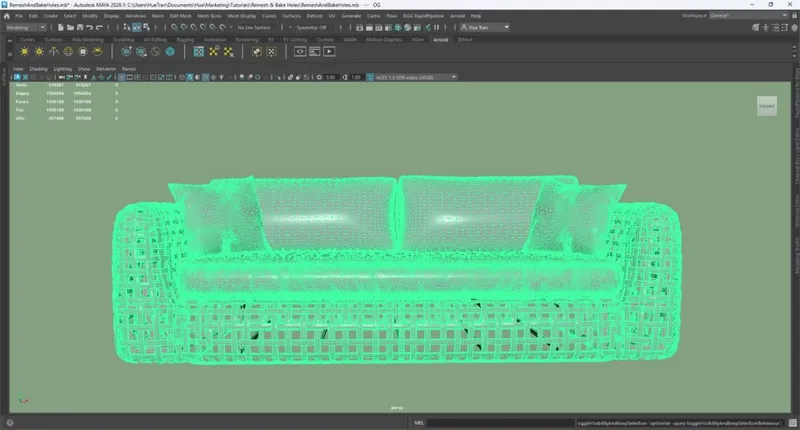
The Input in ”Solid” + “Wireframe on Shaded” Shading.
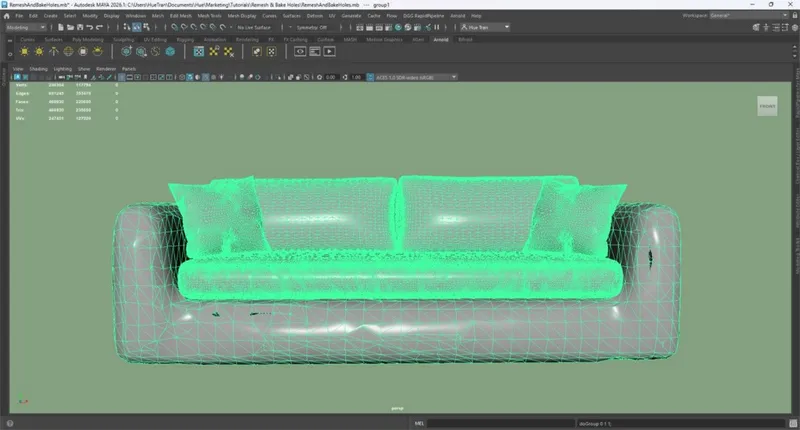
The Output in ”Solid” + “Wireframe on Shaded” Shading.
To get started with 3D data conversion and optimization today, sign up for a free account!
If you have any questions, feel free to chat with our human team.
Meet the Author

3D Knowledge Team
3D Technical Artists
RapidPipeline lets you convert, optimize and prepare your 3D models, easily. Try it today, or meet our human 3D experts. The Best-in-Class Tools for Your 3D Processing Jobs